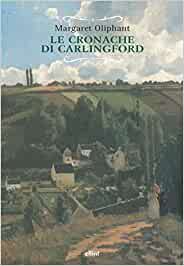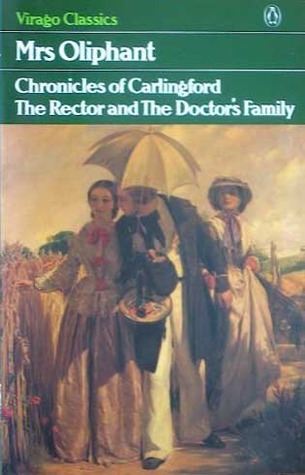


Books in series

The Executor
1861

Le cronache di Carlingford
L'esecutore testamentario - Il rettore - La famiglia del medico
2022

The Rector
1863

The Doctor's Family
1863

Salem Chapel
1863

The Perpetual Curate
1864

Miss Marjoribanks
1865

Phoebe Junior
1876

The Rector and The Doctor's Family
1861
Author

Margaret Oliphant Wilson Oliphant (née Margaret Oliphant Wilson) was a Scottish novelist and historical writer, who usually wrote as Mrs. Oliphant. Her fictional works encompass "domestic realism, the historical novel and tales of the supernatural". Margaret Oliphant was born at Wallyford, near Musselburgh, East Lothian, and spent her childhood at Lasswade (near Dalkeith), Glasgow and Liverpool. As a girl, she constantly experimented with writing. In 1849 she had her first novel published: Passages in the Life of Mrs. Margaret Maitland which dealt with the Scottish Free Church movement. It was followed by Caleb Field in 1851, the year in which she met the publisher William Blackwood in Edinburgh and was invited to contribute to the famous Blackwood's Magazine. The connection was to last for her whole lifetime, during which she contributed well over 100 articles, including, a critique of the character of Arthur Dimmesdale in Nathaniel Hawthorne's The Scarlet Letter.